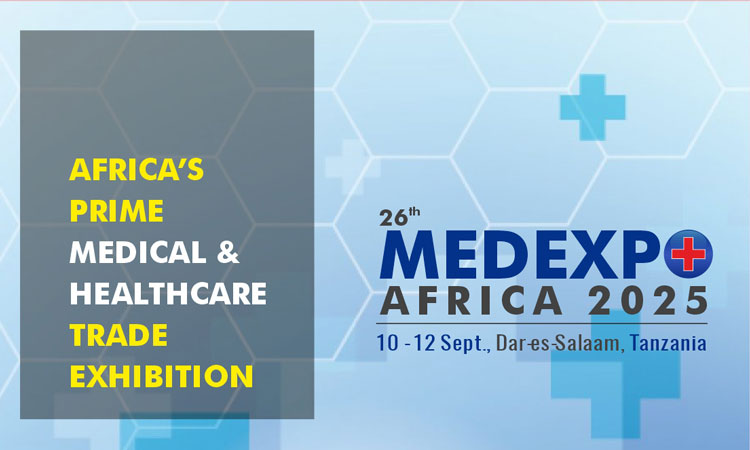

Tanzania: New State of the Art Sickle Cell Testing Kit Unveiled
Posted on :Tuesday , 24th January 2017
Dar es Salaam, Tanzania — A new and state-of-the-art sickle cell-diagnostic technology, "Sickle-Scan test kit" was officially launched in Dar es Salaam last week - a big boost to the government's efforts aimed to reduce the number of people dying of sickle cell and related diseases in the country.
"With this technology, we can rescue millions of people, particularly children, dying of sickle cell diseases," said Dr. Khamis Kigwangwalla, Tanzania's Deputy Minister of Health, Social Development, Gender, Elderly and Children, at the official launching of the Sickle-Scan test kit, a new technology which has been introduced by a private health company Medomix.
Sickle Scan is a rapid test device for sickle cell which gives results in a short period, within 30 minutes, according to health experts. Sickle scan is qualitative test for rapid diagnosis of sickle cell disorders of hemoglobin's A, S, and C using finger stick, heel-stick or venipucture whole blood samples.
Deputy health minister described the introduction of sickle-testing kit as "a great revolution for the country" in the wake of increasing number of children and adults dying of sickle cell diseases. Quoting latest global statistics, the minister said more than 300, 000 new born in the world are said to have sickle cell, and 76% of them lives in Africa.
"Between 8, 000 and 11, 000 children in Tanzania are born with sickle cell," says Kigwangwalla, noting that the newly-introduced technology, Sickle-scan will greatly improve survival prospects for children born with sickle cell," he said.
Adding that "Sickle scan is accurate, effective, efficient, fast and affordable test which can be of great benefit in low resource settings, as it does not require electricity, hence can be used in remote areas, said the minister. "Technology does not require expert personnel to interpret results," he added.
The new technology comes as the government is stepping up strategic national plans to contain non-communicable (NCDs) diseases, sickle cell included, said the deputy minister, stressing that "in fact, this new technology will complement our efforts to contain sickle cell and related disorders in the country. Sickle-scan conducts proper diagnosis, something which could help our medical facilities to provide proper treatment to the patients."
In his introductory remarks, Bob Kabugi, Business Development Director of Medomix Company, the brain behind the newly-introduced technology said in most countries where sickle cell disease is prevalent management of this disorder has remained inadequate simply because there was no reliable and affordable means of diagnosis.
He said in the past, the available methods of sickle cell diagnosis were expensive, cumbersome, time consuming and difficult to interpret, observing that "with sickle scan, diagnosis has been simplified and proper treatment assured.
"Sickle cell disease is preventable," says Kabugi, noting that "this is possible if we have accurate method of screening which is currently only being offered by this revolutionary device." Couples at the risk having affected children can be identified easily by taking sickle cell disease screening using sickle scan," he said.
Medomix plans to spread the technology down to the remote areas, something which the deputy health minister says would assist to reduce congestion of sickle cell patients seeking for the services in regional and referral hospitals.
Please Select an Option
-
Exhibiting
-
Visiting
-
Information

Expogroup
Expogroup is a full service exhibition organiser with over 30 years experience in International trade exhibitions. Our current portfolio includes 28 annual exhibitions from a diverse range of industries being held across the Middle East & Africa.
EXPOGROUP © 2026 | Privacy policy